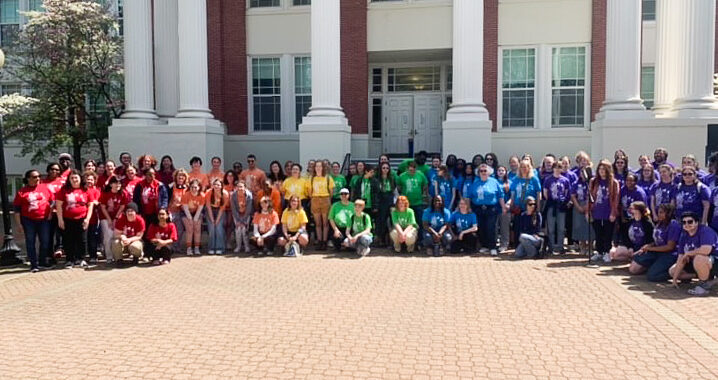UMW Stands by Its Alcohol Policy
2 min readWhile Virginia Tech is cracking down on its alcohol policy, Mary Washington does not seem to be making any changes, at least for now.
Earlier this month, Virginia Tech updated its alcohol and drug policy in response to parental requests, mandating that parents should be contacted as early as the first violation of the policy, as reported by the Washington Post earlier this month.
In making the change, the university left behind its prior alcohol policy, one similar to the policy currently in place at UMW. This move raised some questions as to whether Virginia Tech’s policy change will set a precedent for other area colleges and universities.
All public universities within the state of Virginia maintain some sort of parental notification policy in concern to alcohol violations, Ray Tuttle, UMW director of judicial affairs, said.
“I will be interested to what impact it has,” Tuttle said of the recent Virginia Tech decision.
Tuttle, who has been at UMW for almost 14 years, said that UMW instituted a parental notification policy in August 1999. The policy states that parents will be notified after the student receives his or her second or subsequent minor alcohol violation.
“We invoke the policy about 40 times during an academic year,” Tuttle said.
While freshman Chelsea Dicus said she didn’t have a big opinion of the alcohol policy at UMW, she said she prefered it over the new policy at Virginia Tech.
“We’re supposed to be adults, but if it gets out of hand your parents should know,” Dicus said.
Sophomore Erik Burnham agreed.
“I don’t think parents should have anything to do with it,” Burnham said. “But some students are irresponsible.”
Burnham continued to say that the UMW drug policy should be more like the current alcohol policy.
“When have you ever heard of anyone taken away in an ambulance for smoking too much pot?” he said.
Enforced through various university representatives including resident assistants and campus police, suspected violations are addressed when problems surface. While Tuttle stated that enforcement is consistent in these situations, he would not interpret it as strict.
Over the years, Tuttle noted that more adjustments have been made to sanctions as opposed to the actual policy itself.
“UMW does not consider parental notification to be a sanction,” Tuttle said. “It is an opportunity to have a conversation with parents about their student’s alcohol use, give the fact that there is a negative correlation between alcohol use and academic success.”
“If Virginia’s alcohol laws were to change…or if we became aware of unintended negative consequences associated with our policies, we definitely would review them,” Tuttle said when asked about possible changes to the policy in the near future.
-Anne Elder contributed to this report











